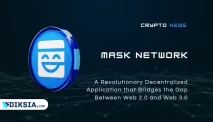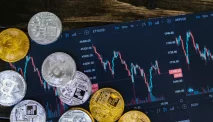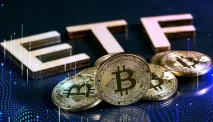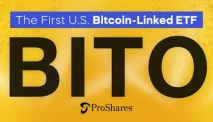Upbit is a popular exchange in South Korea that offers low fees. Coinbase Pro is a good option for US residents who want to trade Polygon. Kraken is a well-respected exchange that offers margin trading. Gemini is a secure exchange that is known for its focus on compliance.
Bitstamp is a long-standing exchange that is popular with European traders. MEXC is a newer exchange that offers a wide variety of trading pairs and margin trading. Crypto.com is a popular exchange with a good selection of features, including staking and lending. Bybit is a popular exchange for derivatives trading.
It is important to do your research before choosing an exchange to trade Polygon. Consider the fees, features, and security offered by each exchange to find the best one for you.
Polygon Investment
Is Polygon a good investment?
Polygon is a promising project that offers various scaling and infrastructure solutions for Ethereum, which is the leading platform for decentralized applications. Polygon has a strong team, a clear vision, a comprehensive roadmap, and a vibrant community.
Polygon also has a growing ecosystem of partners and collaborators, such as Decentraland, Aave, SushiSwap, OpenSea, and more. However, investing in cryptocurrency is always risky and volatile, and there are no guarantees of returns or profits.
Investors should do their own research, analysis, and due diligence before making any investment decisions. Investors should also be aware of the potential challenges and risks that Polygon may face, such as:
- Competition: Polygon is not the only project that offers scaling and infrastructure solutions for Ethereum. There are other projects, such as Optimism, Arbitrum, zkSync, and more, that are also working on similar or different approaches to solve the scalability problem. Polygon may face competition from these projects in terms of adoption, innovation, and market share.
- Regulation: Polygon operates in a highly uncertain and dynamic regulatory environment, where different jurisdictions may have different rules and laws regarding cryptocurrency and blockchain. Polygon may face legal or regulatory challenges or barriers that could affect its operations, development, or growth.
- Technology: Polygon relies on complex and novel technologies, such as Plasma, ZK rollups, optimistic rollups, and more, that are still in development and testing stages. Polygon may encounter technical issues, bugs, glitches, or vulnerabilities that could compromise its security, functionality, or performance.
What are the risks of investing in Polygon?
Some of the risks of investing in Polygon are:
- Market risk: Polygon is subject to the fluctuations and volatility of the cryptocurrency market, which is influenced by various factors, such as supply and demand, news and events, sentiment and speculation, and more. Polygon’s price may rise or fall significantly in a short period of time, depending on the market conditions and trends.
- Liquidity risk: Polygon’s liquidity may vary depending on the availability and accessibility of exchanges, platforms, and services that support MATIC trading. Polygon’s liquidity may also be affected by network congestion, transaction fees, or technical issues that could limit or delay the transfer of MATIC tokens.
- Regulatory risk: Polygon’s regulatory status may change depending on the policies and actions of governments, authorities, or agencies that oversee or regulate cryptocurrency and blockchain. Polygon may face legal or regulatory challenges or barriers that could affect its operations, development, or growth.
- Technology risk: Polygon’s technology may encounter technical issues, bugs, glitches, or vulnerabilities that could compromise its security, functionality, or performance. Polygon may also face cyberattacks, hacks, or breaches that could result in the loss or theft of MATIC tokens or user data.
How can I buy Polygon?
There are different ways to buy Polygon (MATIC) tokens, such as:
- Buying MATIC with fiat currency: Some exchanges or platforms allow users to buy MATIC directly with fiat currency (such as USD, EUR, GBP, etc.) using various payment methods (such as credit card, debit card, bank transfer, etc.). For example, users can buy MATIC with fiat currency on Coinbase, Binance, Kraken, Gemini, and more.
- Buying MATIC with cryptocurrency: Some exchanges or platforms allow users to buy MATIC with other cryptocurrencies (such as BTC, ETH, USDT, etc.) using various trading pairs (such as MATIC/BTC, MATIC/ETH, MATIC/USDT, etc.). For example, users can buy MATIC with cryptocurrency on Binance, Coinbase Pro, Huobi Global, OKEx, FTX, and more.
- Buying MATIC with decentralized exchanges (DEXs): Some decentralized exchanges (DEXs) allow users to buy MATIC with other cryptocurrencies (such as ETH) using smart contracts and liquidity pools (such as Uniswap, SushiSwap, QuickSwap, etc.). For example, users can buy MATIC with ETH on Uniswap, SushiSwap, QuickSwap, etc.
After buying MATIC tokens, users can store them in various wallets that support MATIC, such as:
- Polygon Wallet: A web-based wallet that allows users to manage their MATIC tokens and access various Polygon applications.
- MetaMask: A browser extension and mobile app that allows users to interact with Ethereum and Polygon networks and applications.
- Trust Wallet: A mobile app that allows users to store and manage multiple cryptocurrencies, including MATIC.
- Coinbase Wallet: A mobile app that allows users to store and manage multiple cryptocurrencies, including MATIC, and connect with decentralized applications.
- Ledger: A hardware wallet that allows users to store and secure their MATIC tokens offline.
Conclusion
Polygon is a platform for Ethereum scaling and infrastructure development that offers various solutions for developers and users. Polygon aims to transform Ethereum into a multi-chain system that can support diverse applications and use cases.






